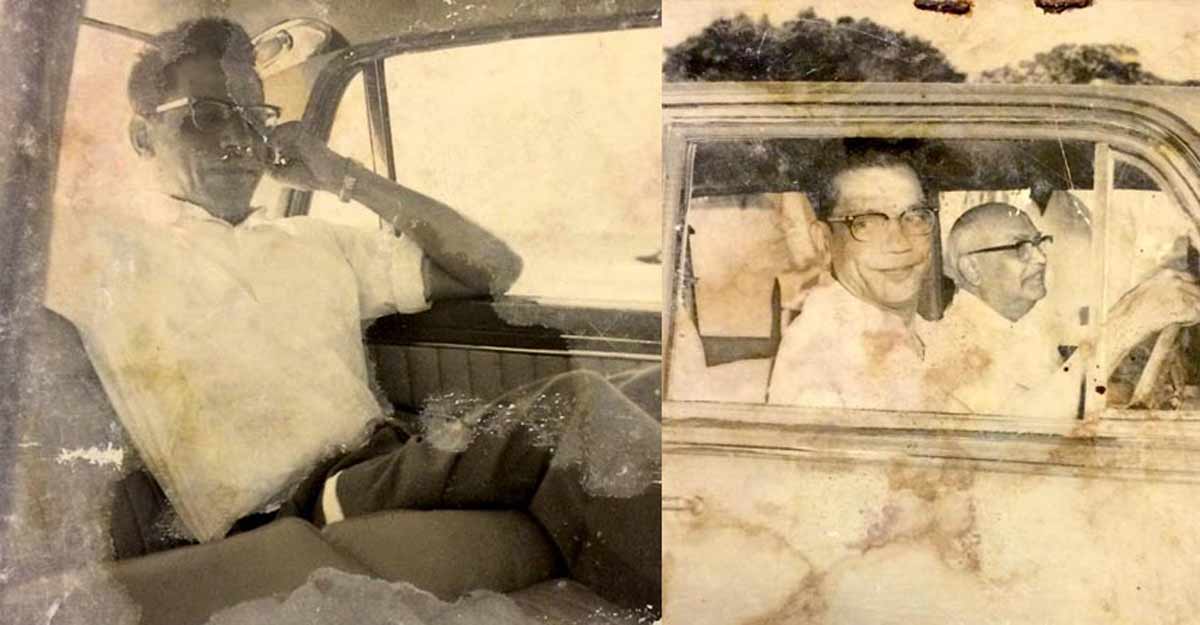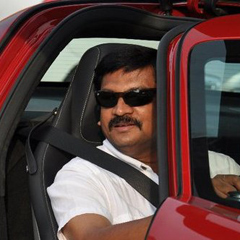Meet the long-forgotten 'Aravind', a car made in Kerala

Mail This Article
The story is set in the 1960s. The king of Thiruvithamkoor, Sree Chithira Thirunal, wanted to have a car of his liking. A visit to Goa would help procure elegant European and American cars, the king was informed. The king's private secretary P V Thampi and a well-known automobile engineer of that time K A Balakrishna Menon set off to Goa. They returned with the concept of a car that the world had never seen.
Today's mostly-forgotten, story made it to the Illustrated Weekly of India in 1966. In the recent past, social media picked up the story from their official facebook page. Here is the story of the second Aravind that ought to find a place in the history of the automobile industry in India, courtesy the report that appeared in the Illustrated Weekly without a by-line.
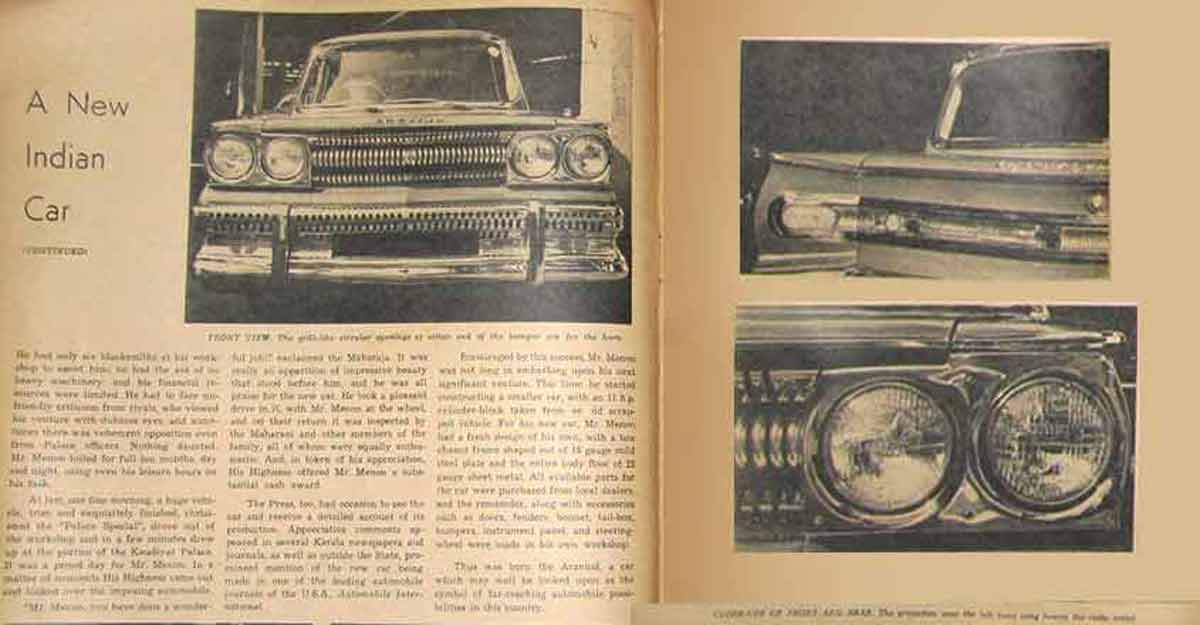
Thampi and Menon, who reached Goa by road and air, hit a dead-end a few days of searching. They couldn't find a car that the king wanted from Panaji and other areas of Goa. Disappointed, they planned their return journey in their hotel. Though Thampi had lost hope, Menon was not willing to return empty-handed. He ordered paper and pencil from the hotel's reception and prepared the sketch of a car that they thought would appeal to the king. It was basically an amalgamation of all the features and design elements from the cars of that era. He then showed the sketch to Thampi and asked him, "Should I make this car for the king?" Seeing the sketch, Thampi could have smiled. But that sketch led to the birth to Aravind Palace Special.
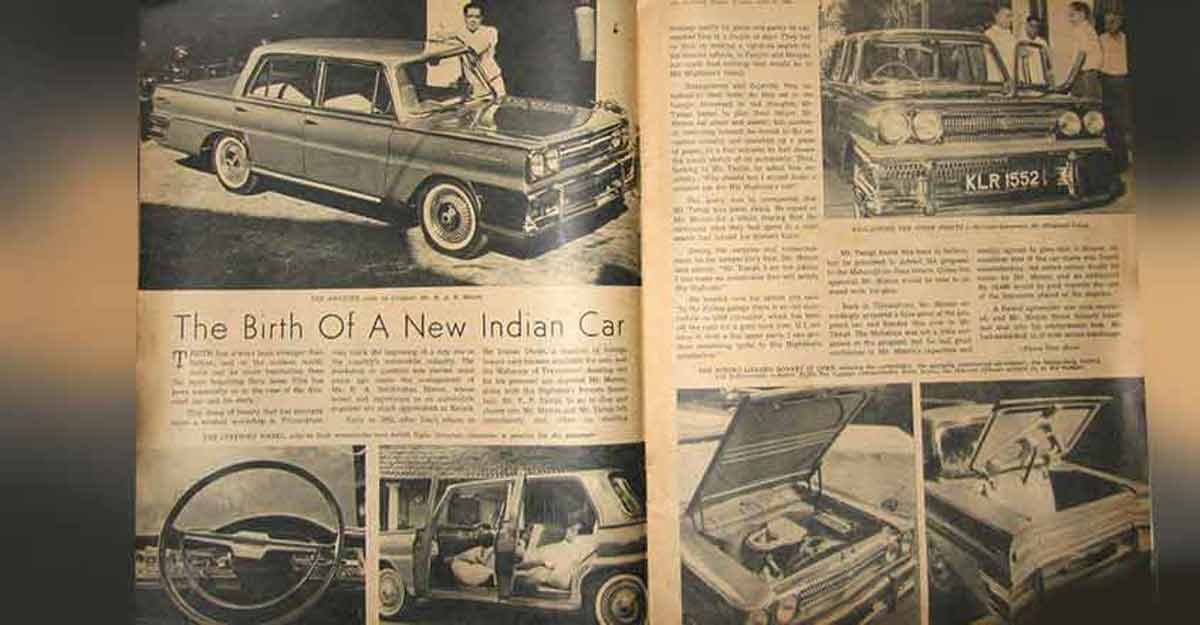
When they returned to Thiruvananthapuram, Menon prepared a detailed sketch and blueprint and presented before the king. Menon told the king that if he could give him the 1939 model Cadillac Fleetwood limousine that was lying in the garage as donor car, work can start immediately. Though taken aback, the king decided to give Menon a chance. A contract was drawn up, which said that if the king doesn't like the end-product, Menon was pay for the Cadillac that was valued at Rs. 10,000. The contract was signed, and Menon started work on the new car.
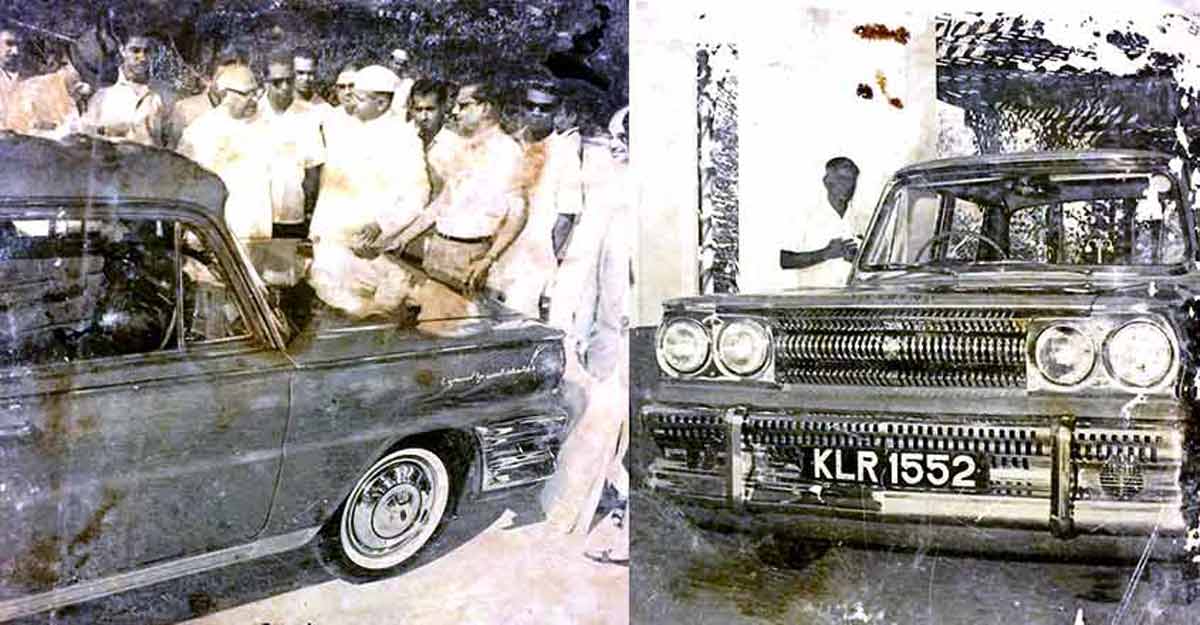
Six blacksmiths at Menon's workshop worked as his assistants on the project. There was no mechanised equipment then, and everything was done by bare hands. Besides, funds were also hard to come by. Menon had to face barbs that compared him to Henry Ford, and he was even called crazy. The Illustrated Weekly reporter has noted that even the officials of the palace were joking about it to Menon.
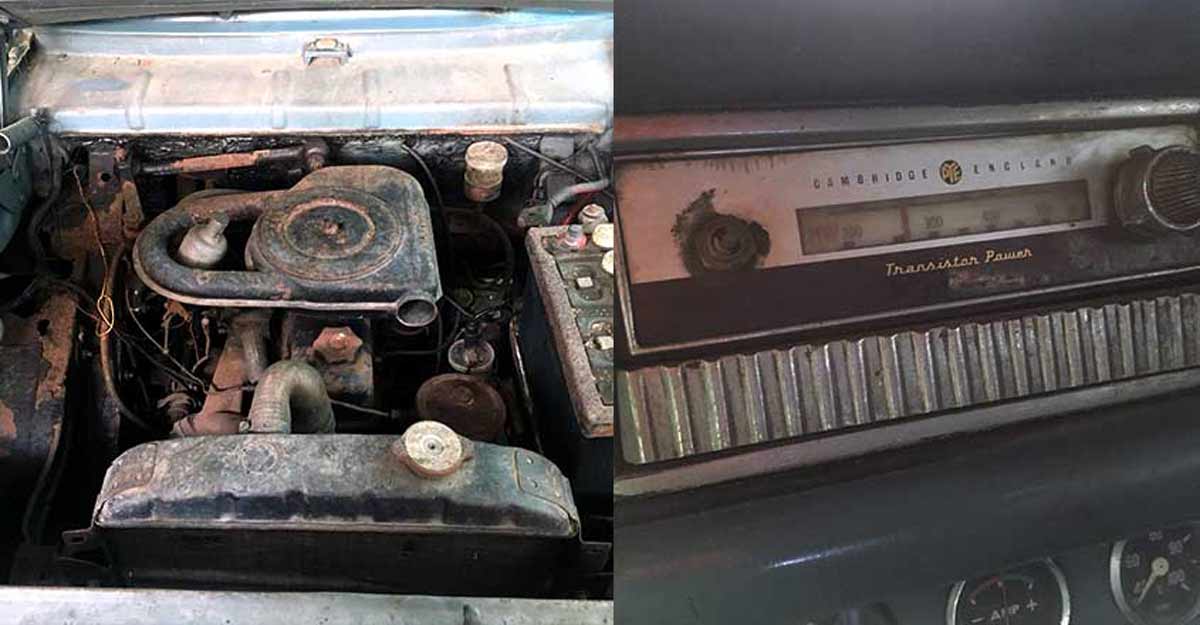
But Menon didn't give up, and in 10 months his second baby was born. It was a large car. It was named Aravind Palace Special. Menon drove the car to the portico of the palace.
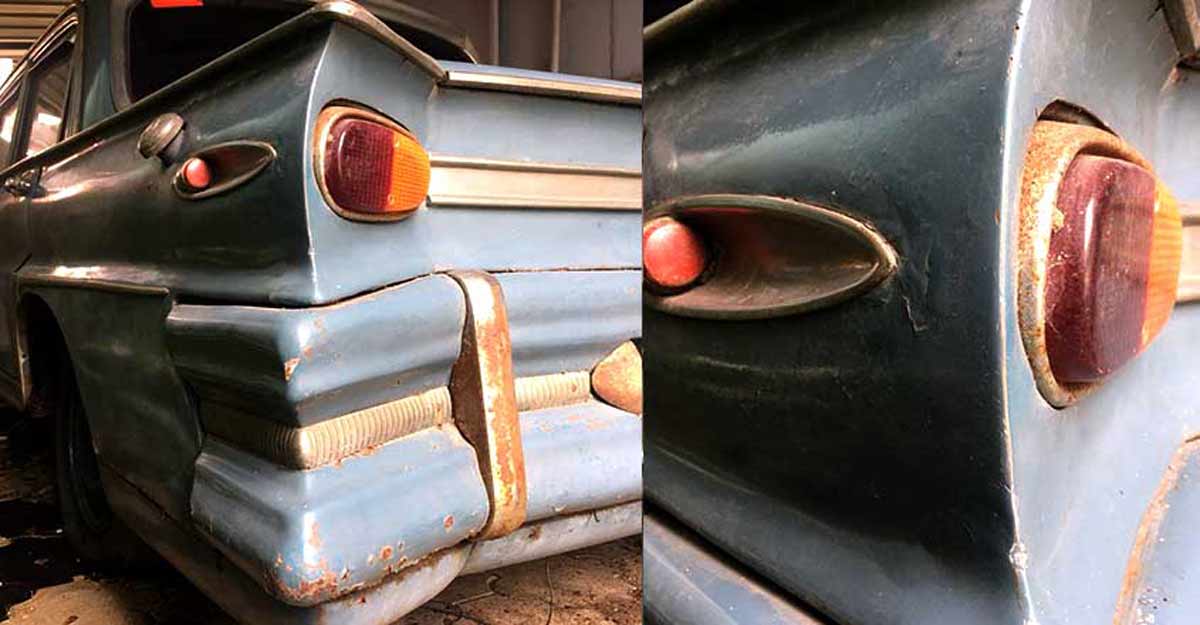
The king came out and was surprised to see the car of his dreams parked in front of him. He showered praises on Menon and was ready to get behind the wheels. But it was Menon who drove then; the king occupied the front passenger seat and royal family members the backseat. Menon got paid Rs 25,000 for the job – soon after in true royal style.
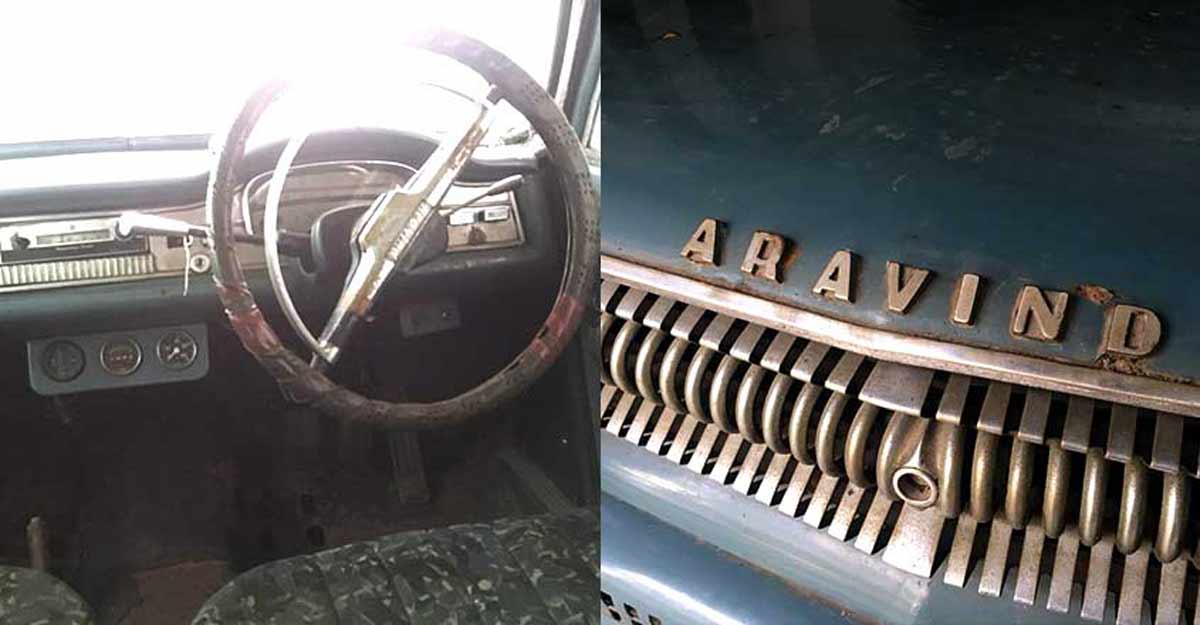
Menon’s fame reached foreign shores and even the US. Media hailed him; even Automobile International magazine carried stories about him. The success encouraged Menon to make another car on his own as the prototype for the Indian government's ‘small-car project’. That was how Aravind Model 3 took shape; it was much smaller and looked much like contemporary American models. This car is still around, and Malayalam Manorama will get you more exciting details in the future.
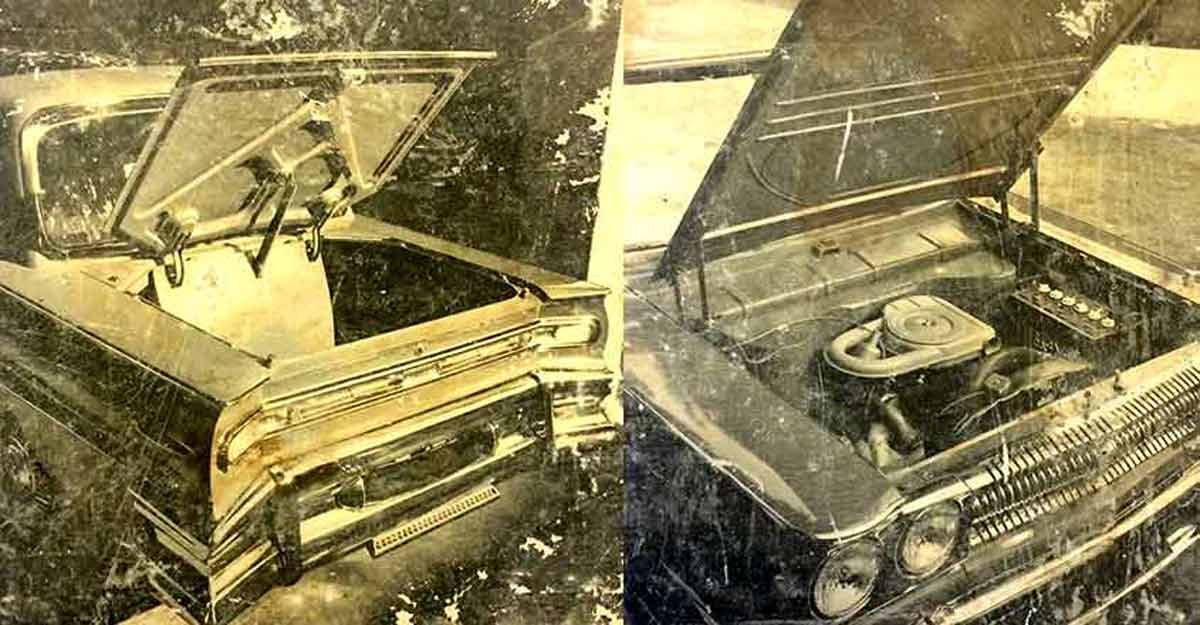
The prototype of the Model 3 car was made using the engine and other mechanicals that were taken from 1964 Fiat 1100D that was the first Fiat to be built in India and featured a much better engine than the Hindustan Ambassador. It had used the Fiat’s monocoque chassis as a base. Doors, fenders, bonnet, dash and steering wheel were built in-house. The beautiful grille and headlamp unit were inspired by the then luxury cars.
The plan was to sell the car for Rs 5,000. For that, plans on a manufacturing unit was also ready. However, after the death of Menon in 1971, the workshop was handed over to a cooperative of his workers. The Aravind Model 3, a testament to the ingenuity of India and the artisans of God’s own country still survives. It is being said that Aravind Automobiles may rise again.
